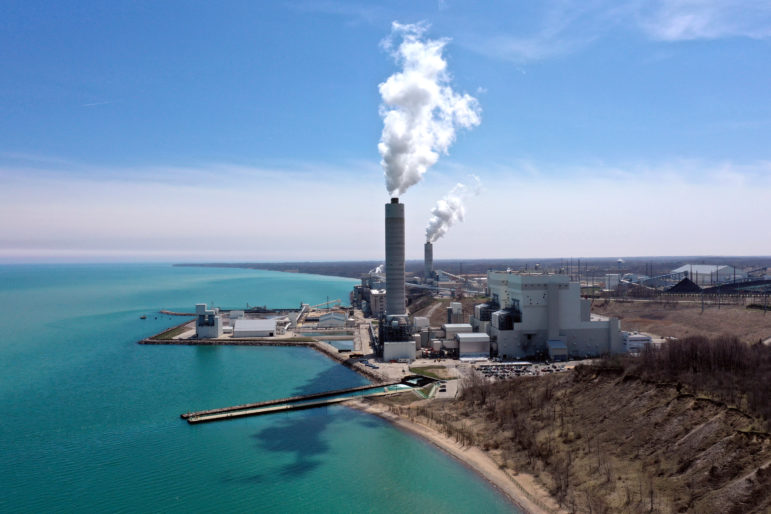Despite lower gasoline prices this winter, makers of electric cars and other alternative fuel vehicles are still chugging forward, as is evident at this week’s Greater Milwaukee Auto Show.
The great majority of cars and pickup trucks sold in the U.S. are still powered by traditional gasoline engines. At the Milwaukee Auto Show this week, there are plenty of cars on display that might be considered “gas guzzlers,” including the huge pickup trucks that were being hawked by a salesperson for Ford.
John Meyer of Waukesha checked out one of the bigger trucks that had not only a front seat, but a back seat too.
News with a little more humanity
WPR’s “Wisconsin Today” newsletter keeps you connected to the state you love without feeling overwhelmed. No paywall. No agenda. No corporate filter.
“I’m only 29 years old,” he said. “Probably in the next couple years I’ll have kids or whatnot, so we need just a bigger car to haul people.”
Meyer said he’s not looking at electric or hybrid gas-electric cars at the show because he doesn’t think the battery technology has come along far enough. That’s not the message from Sean Bennett, who’s promoting Chevrolet’s hybrid electric vehicle, the Volt, at the auto show.
“Pretty much everything in front of you will tell you how you’re driving, exactly what your range is left as far as your battery life, and how to actually improve it,” said Bennett.

The Toyota Mirai is fueled by hydrogen cells. Rob Pegoraro (CC-BY-NC-SA)

The expansion of charging stations will likely be key to the success of electric cars. Jeffrey Doo (CC-BY-NC-SA).
The Volt goes about 38 miles on a battery charging, before a gasoline engine needs to take over to allow drivers to go as much as 380 miles. The U.S.-made car interests Michael McNett of Genesee Depot, who said he’s thinking about giving up his foreign-made gas-electric hybrid vehicle.
“I think the fuel savings is a big part of it, but the other thing is I really like to buy domestic if I can. I want to support the American economy and I’m always torn about buying foreign cars,” he said.
McNett also said that because of the distance he drives to work, he may want to wait until Chevrolet’s promised upgrade of the Volt, which would give the car a 50-mile battery range, as well as a fifth seat. That model would also possibly come with a price cut.
Some other backers of alternative fuel cars like Kyle Gumm of Racine aren’t happy with the styling of the Volt. Gumm said he’s still hoping electric carmakers will suit his taste at a price he can afford.
“We — my wife and I — are definitely environmentally conscious,” said Gumm. “We want a vehicle that will get us where we want to go, with minimal abuse, you could say, to the environment.”
Tesla, Nissan and BMW are among the other carmakers that currently offer all-electric vehicles. Chevy has promised to offer one of its own in a couple years with a model called The Bolt.
Jim Tolkan of the Auto Dealers Association of Metro Milwaukee said adding range and more charging stations will be key to the success of electric cars. However, he said the vehicles aren’t going away, largely because of pressure to reduce gas-engine emissions that lead to climate change.
Since much of the electricity for recharging electric vehicles comes from coal or natural-gas-fired power plants, there are still some concerns about carbon emissions. Toyota — which has been a leader on gas-electric hybrids, but has stopped producing electric cars — is offering one more possibility. Company product specialist Maggie Clark said Toyota’s hydrogen fuel cell-powered model, the Mirai is just waiting on more fueling stations.
“The state of California is building over 100 stations, and many other states are getting on board,” she said.
There’s also been some improvement in mileage among the traditional gasoline-fired fleet — though at the Milwaukee Auto Show, it’s still possible to find a Maserati that gets just 18 miles per gallon combined city-highway and that costs $92,000.
Wisconsin Public Radio, © Copyright 2025, Board of Regents of the University of Wisconsin System and Wisconsin Educational Communications Board.







